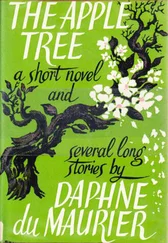A couple of weeks after school started in the fall, Shirley came over to read to the Garbers Roy’s first letter from the fighting front! The family got one letter all to themselves in the summer, scrawled in big handwriting that Mom said showed how tired Roy was, but Dad said it just meant Roy was trying to fill up the page and so was the same old Roy and they shouldn’t worry about him. The only exciting part of it had been where the censors had inked out a word. Roy had said, “I got me a view of the ocean, but the nearest hotel is at XXXXXXXXXX.”
But the letter to Shirley from the front was full of amazing, firsthand stuff about actually fighting the Japs! Of course, Roy wasn’t allowed to say where he was, and when you wrote him it was just to the A.P.O. number in San Francisco where all the mail to the South Pacific went, but from reading the papers everyone knew Roy’s First Marine Division was fighting in New Guinea, and Guadalcanal, and it was probably one of those places or maybe one of the smaller islands that wasn’t even famous yet. The important thing was that he was really in the thick of it.
Shirley’s voice cracked and the thin, V-mail stationery rattled in her trembling hands when she read from Roy’s letter how the Marines were doing great but the fighting would probably take a long time because “it takes time to dig the little rats out of their holes.… If you look into the jungle you can’t tell if there are three monkeys out there or three hundred … it’s better to shoot a few coconuts than miss a Jap.” Artie made Shirley read those “good parts” over so he could write them down and report them to his class at school, which made him sort of a hero himself, just because he was Roy’s brother.
But that was nothing compared to the day Artie went to pick up the papers for his route just before Thanksgiving. The bikes of three or four other carriers were parked outside the shed where the truck dropped off the papers from Moline and Old Man Mosely counted them out and made sure all the routes were delivered and the money collected on time. The kids were huddled around Mosely reading something in the new paper, and when Artie came up everyone started cheering. There was a story in the paper that read:
FORMER BIRNEY STAR GETS 17 JAPS ON GUADALCANAL
A sharp-shooting fool who is as cool while picking off Japs as he was while sniping baskets for Birney (Ill.) High School was listed in official records today as one of the outstanding snipers in this jungle battlefield. He is Private Roy Garber, credited with seventeen Japs—all of them plucked out of trees with a Garand rifle. Close behind Garber is Private Charles Bailey of Swayzee (Ind.), with eleven. He got them all at one time.
Artie stuck a pin for Roy on the Battle Map of the South Pacific he had thumbtacked to the kitchen wall, right on the island of Guadalcanal. He prayed he would grow up faster so he could join the fight for freedom, and dreamed of being in uniform alongside Roy, the two heroic brothers risking their lives so the world could live happily ever after.
Artie was in uniform.
He stood at Attention along with more than two hundred other troops awaiting their orders.
“Right hace !” barked the Commander, and Artie pivoted on his right heel, snapping his left alongside it in the same rhythm as the rest of the disciplined ranks, all with chins up, shoulders thrown back.
“For-ard harch !” the command came, and Artie stepped ahead, his legs moving in unison with the hundreds of others, his chest thrust out and swelling with the pride of being part of this well-trained outfit.
“By the left flank— harch !”
As one man, the lines swung smoothly into lengthwise columns on command as they approached the reviewing stand, where among the uniformed officers stood the venerable United States Senator Orville P. Hapgood, wizened and wise, silver of hair and tongue, come to deliver an inspirational Wartime message to the troops.
“Eyyyyyyyyes— right !” the command cracked forth, and Artie almost threw his neck out of joint he snapped it so hard to his right, where his eyes caught a glimmer of the Senator himself, his silver hair tousled by the breeze, his black suit and gray tie seeming like a kind of uniform of his own.
When the troops had passed in review and assembled again in formation the Commander put them at Parade Rest and introduced the distinguished visitor.
“We of Camp Cho-Ko-Mo-Ko, Boy Scouts of America, are proud to welcome the Honorable Senator Orville P. Hapgood, who is here today to pay tribute to our work, and spur us on to greater effort in the fight for freedom and democracy.”
In the hot sticky Sunday air, with only the sound of a few buzzing horseflies marring the military stillness, Artie concentrated with all his might. He wanted to remember everything down to the last detail so he could write all about it to Roy in his next V-mail letter. Everything was happening so fast now it was hard to keep up with all the exciting stuff going on in his own life and around the world.
Just before school was out for summer vacation the Americans and British had routed the powerful panzer divisions of the Nazis in the desert of Africa, and Artie had clipped out the headline about it that said “Axis Trembles with Fear!” Out in the South Pacific, Roy and the U.S. Marines had finally captured the key island of Guadalcanal, and were pushing back the Japs in those tiny dots of islands on the Battle Map that Artie had thumbtacked up on the kitchen wall. He stuck a red pin in whatever place he thought Roy was fighting, and memorized the weird-sounding names of places no one had ever heard of a year ago and now were famous: Rendova, Kolombangara, Vella Lavella, Bougainville .
Some people thought the War might even be won by Christmas, which would make 1943 a red-letter year for Freedom as well as for Artie, who had joined the Boy Scouts on his twelfth birthday and put away the innocently bright blue kidlike uniform of the Cubs for the manly khaki outfit he wore today. The orange crayon marks on his bedroom door showed he had grown past the magic five-foot mark and now was tall enough to be in the Service! He only wished he and his uniformed comrades could march to San Francisco right now and board a ship bound for the Solomon Islands to reinforce Roy and his leatherneck buddies.
He tensed his muscles to resist the awful temptation to swat away the horsefly that had settled on the tip of his right ear, and watched in statuelike respect as Senator Hapgood stepped forward, stern and gray-faced, to address the troops of Cho-Ko-Mo-Ko. Artie wondered if the decrepit old guy would be able to talk loud enough, but he shouldn’t have worried. Hapgood’s crackling voice resounded clearly across the cow-pasture-turned-parade-ground, with words that would remain forever engraved in the hearts and minds of every boy who heard them, right to their dying day.
Before the unforgettable part, Hapgood praised the Scouts of Cho-Ko-Mo-Ko for taking a whole week off from their regular schedule of canoeing, knot-tying, making fires from their own wooden and leather-thong tools, and baking potatoes in the mud, to spread out across the surrounding countryside and collect scrap metal from every farm, in a drive that brought in 17,483 pounds of potential planes, guns, and ammunition for the War Effort. The boys knew from the ad clipped out of Life magazine and posted on the Pow-Wow Board just how directly this material could be transformed into fighting equipment: “7700 aluminum pans make a pursuit plane … 1 iron makes 2 helmets … 1 old tire makes 8 gas masks … 1 refrigerator makes 3 machine guns … 1 old radiator makes an aerial bomb …” and so on. Artie had hoped they could actually collect the 7700 pans to make a whole pursuit plane, but a lot of the farmers’ wives were pretty chintzy about giving away the pans they cooked in even for a pursuit plane. The guys hoped anyway that the whole amount they collected would make a pursuit plane, even if a lot of it was rusty old car fenders, broken bicycle chains, beat-up shovels and teeth-bent rakes and battered cans instead of actual aluminum pans. The Senator didn’t say anything about the pursuit plane, he just said the Scouts of Cho-Ko-Mo-Ko had made a “significant contribution” that would help Our Boys on the far-flung battlefronts of the world in the fight to save it from the dark night of everlasting infamy.
Читать дальше












